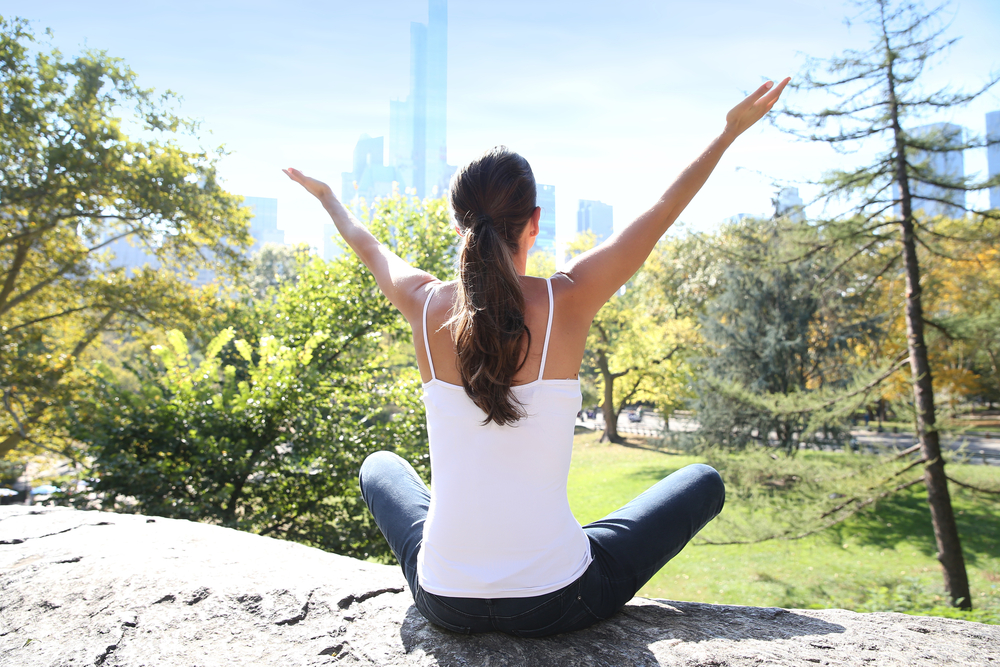Can’t Sleep? 8 Tips That Can Help
Make the room you sleep in a peaceful retreat.
If your bedroom is a place of distraction and chaos, it will be that much more difficult for you to fall asleep. Remove the alarm clock from sight — instead, put it under the bed or in a drawer. Adjust the room temperature for your comfort — for most people that’s between 65°F and 70°F — and make sure you have comfortable pillows and enough blankets. Hang blackout curtains or wear an eye mask if you are easily awakened by light.

Add White Noise
Add white noise.
For many people, noise that is steady and not easily identifiable is easier to tune out than the sound of snoring, the rumble of traffic, or the musical stylings of the amateur trumpet player who lives next door. For others, total silence is disturbing. White-noise machines emit a steady whirring or purring sound, similar to the sound of wind rustling through leaves, which provides a welcome distraction for both these problems.

Practice good sleep habits
Practice good sleep habits.
Sleeping well is often about establishing the right habits. If your bed has become a place of tension from an extended bout of insomnia, then you have to work that much harder to associate bed with sleep again. First, get a different perspective by making the bedroom less familiar—move the furniture around or buy a new set of bedding. Second, stick with a regular schedule of going to bed and waking up so your body will learn to associate certain times of day with a particular part of your sleep rhythm. Third, avoid using the bedroom for anything except sleeping and sex—no reading, no television and definitely no eating. Finally, don’t let insomnia into the bedroom. If you are unable to fall asleep within 20 minutes, get up, go to another room and do something relaxing. Return to bed only when you feel sleepy again.

Wean yourself off naps
Wean yourself off naps.
People with insomnia often resort to afternoon naps to catch up on their missed sleep, but that’s a mistake. Napping encourages insomnia because you’ll be less likely to be tired at bedtime if you sleep during the day. It can become a counterproductive habit. Fight the urge; but if you must nap, don’t sleep for more than 20 minutes. After a day or two, your body will learn that the proper time for sleep is when you lie down in bed at the end of a day.

Make a to-do list
Make a to-do list.
People tend to lie awake in bed angst–ridden over all the things they need to get done. Before you go to bed each night, draft a list of everything you need to do for the next day. Getting it down on paper helps get it out of your mind.

Learn to relax
Learn to relax.
You can’t run a crazy life and expect to just unplug your mind when you slip into bed. Sleep requires relaxation of mind and body. Try to take 30 minutes out at the end of each day to unwind: meditate, read, do yoga, take a hot shower or candlelit bath… anything that helps you put worries away for the next eight hours.

Exercise regularly, early in the day
Exercise regularly, early in the day.
Some scientists believe that regular exercise may be the single best and safest method for improving sleep. Exercise has many wonderful effects on the body, all of which may contribute to better sleep. Exercise forces the body to work harder than usual, which means that we generally need more sleep to recuperate from the physical exertion. Exercise also increases the body’s production of endorphins and other hormones that lead to feelings of calm and well–being. However, time of day matters. Working out at night may energize you, ultimately keeping you awake. If you’re struggling with insomnia, limit vigorous exercise to the morning or afternoon. Calming routines like stretching or yoga poses are fine any time of day.

Don’t rely on sleeping pills
Don’t rely on sleeping pills.
Only you and your doctor can determine whether sleep medication is a good option for you. For occasional use, medications can be helpful, but they are not magic—it is always better to try to fix the underlying problem.
Supplements may help you get a good night’s rest. Find out what works and what doesn’t.

Make the room you sleep in a peaceful retreat
Make the room you sleep in a peaceful retreat.
If your bedroom is a place of distraction and chaos, it will be that much more difficult for you to fall asleep. Remove the alarm clock from sight — instead, put it under the bed or in a drawer. Adjust the room temperature for your comfort — for most people that’s between 65°F and 70°F — and make sure you have comfortable pillows and enough blankets. Hang blackout curtains or wear an eye mask if you are easily awakened by light.

